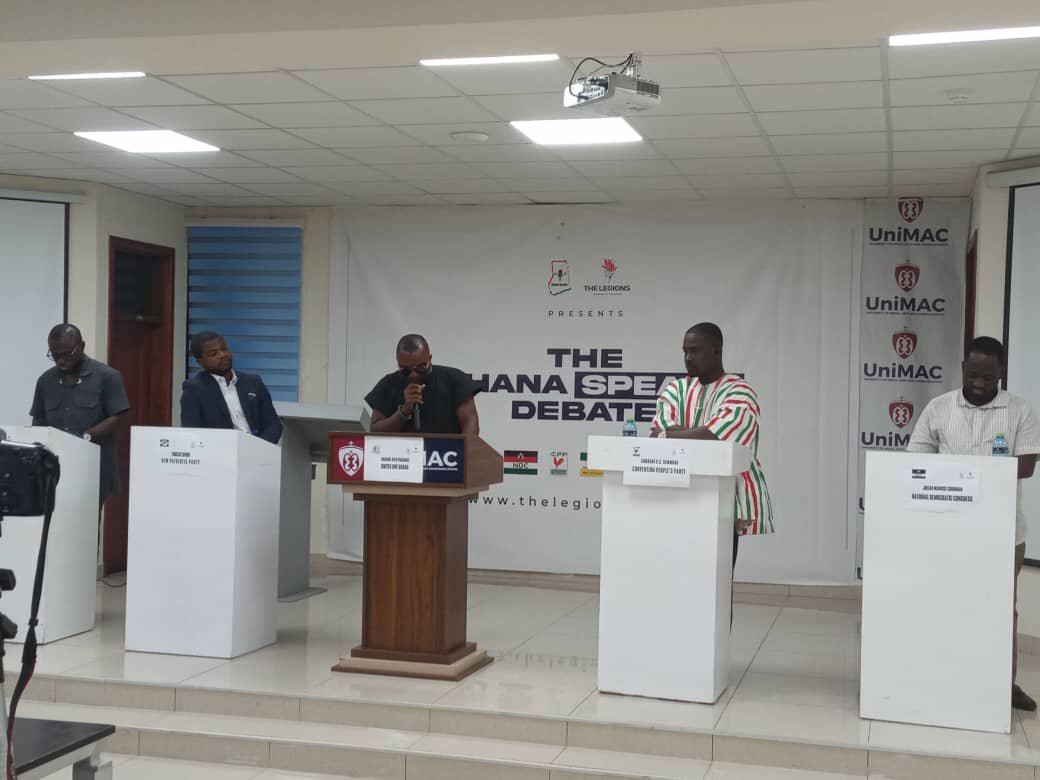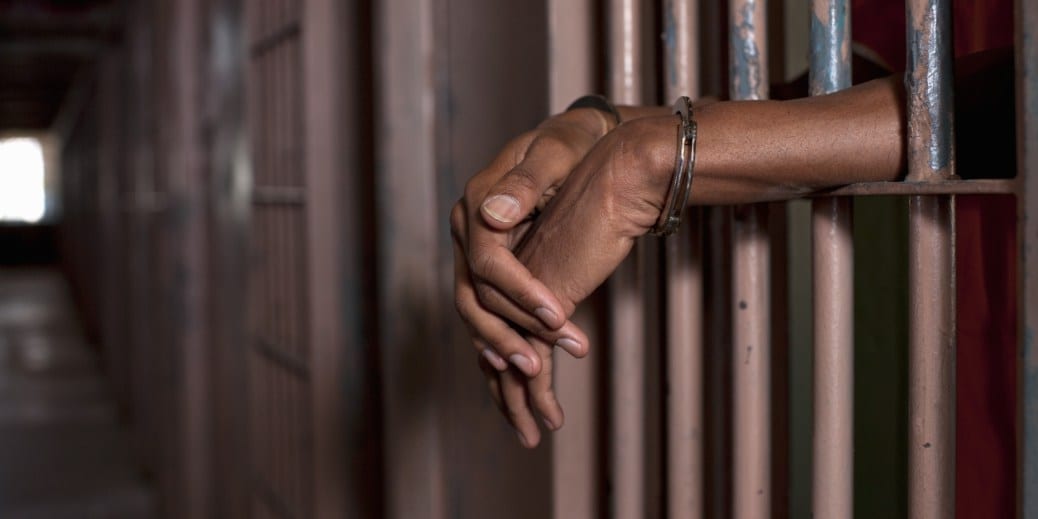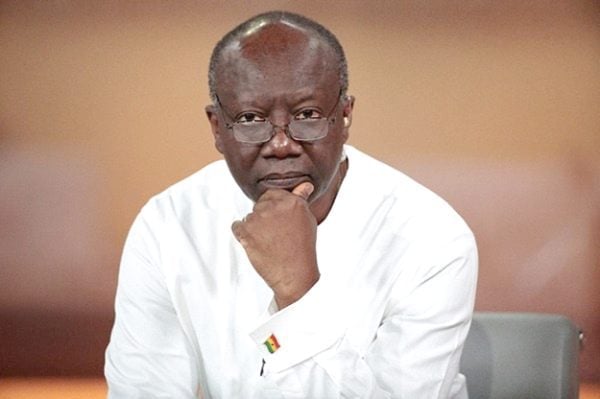
Not many Ghanaians expected the country to be ushered into a somewhat stable social and political environment in 2024. Many were those, including some journalists, who loudly proclaimed doom and agitated for political destabilisation in Ghana. My assumptions – together with evil wishes of some political and economic naysayers – come on the heels of difficult economic conditions caused by both local and foreign factors. There are many opposition elements who insist that Russia’s invasion of Ukraine had little to do with the economic hardships that confronted Ghana between 2022 and 2023.
Inflation and depreciation
One of the key economic difficulties Ghana faced in 2023 was high inflation and its attendant high cost of living. Ghana started 2023 with inflation as high 42.19. The positive development, however, is that the annual inflation rate declined for the fifth month from 42.19 percent to 23.2% in December 2023 compared with 26.4% in November. Though the reduction was the lowest since March 2022, it was still above the Bank of Ghana’s target of 6% to 10%. According to Ghana Statistical Services, the decline of inflation signalled a reduction of prices for both food (28.7% vs 32.2% in November) and non-food items (18.7% vs 21.7%). On a monthly basis, consumer prices rose by 1.2% in December after a 1.5% increase in the prior month.
In 2023, a dollar was forecast to be exchanged for 11.2 cedis on average. In the previous year, the rate was estimated at 8.4 cedis up from 5.6 in 2020. Currently, the cedi is making some impressive gains against the dollar (at 11.7), and is forecast to appreciate at 10.9 cedis to a dollar by the middle of 2023. Since Ghana imports all its crude oil, the dollar appreciation against the cedi translated to high fuel prices – which has a ripple-effect on transportation and food items. In early 2023, fuel prices reached an all-time high of 24 cedis per litre. This was one of the most difficult periods of Ghana’s economy in 2023, as prices of almost every commodity – including pure water, kenkey, fried groundnuts and roasted plantain went up by more than 100 percent.
Ghana’s economy is driven largely by commodity prices, with only a few of the commodities consumed being manufactured locally. Nearly everything is imported – from refined petroleum products to toilet paper, frozen chicken and rice to pharmaceuticals. What’s disturbing is that many of the local food items are produced in Ghana. Many Ghanaians exploit difficult situations to make abnormal profits without the slightest feeling for the plight of society’s most vulnerable. My question is: if fuel and transportation fares drive food prices, why is it that traders refuse to reduce prices when fuel and transport prices are reduced? The lack of control over pricing is perhaps the missing link in Ghana’s economic management.
Cecilia Dapaah’s dollars
Another major issue that characterized 2023 was the Cecilia Dapaah dollar saga. In July 2023, the former Minister of Sanitation and Water Resources reported to police that two of her house-helps had stolen various amounts of foreign and local currencies from her residence at Abelemkpe in Accra.
According to media reports, the thefts occurred between July and October 2022, during which the house-helps allegedly stole assorted clothes of Madam Dapaah valued at GH¢95,000 and jewellery worth US$95,000. The incident sparked public anger, not only against the ex-minister but also against the government of President Akufo-Addo. The main bone of contention was why and how a minister could stash hundreds of thousands of dollars in her house against financial management principles. Many Ghanaains questioned the source of the foreign currency, at a time the Bank of Ghana needed more dollars to meet increasing demand.
The development obviously gave civil society organisations, the media and opposition some meat to chew as they pressed for corruption charges against her. Naturally, the Office of the Special Prosecutor – which was under public scrutiny for poor performance – saw it as a great opportunity to reassert its relevance. But the Special Prosecutor, Mr. Kissi Agyebeng – an astute lawyer, soon ran into procedural difficulties at the courts when he started to investigate Madam Dapaah. Thus, what appeared to be a straightforward case of corruption soon became a nightmare and a hot-iron in the hands of Mr. Aygebeng.
Court of public opinion
Small wonder that Mr. Agyebeng took to the court of public opinion for support. In a highly publicised speech on mainstream media and social media, the Special Prosecutor lamented about the judiciary’s unwillingness to support his plan to arrest, and prosecute public officials accused of corruption and corruption-related activities. He declared that: “No one has the right not to be prosecuted for corruption” – and suggested if any judge fails to uphold his decision to prosecute, that judge is arrogating to him/herself the Special Prosecutor’s powers.
Mr. Agyebeng reiterated that it is not the duty of any court to decide who should be investigated or not, and urged members of the bench to always weigh the evidence presented by the Office before declining requests for investigation and prosecution of public officials. “It is dangerous, there is doom looming; and very soon a murderer will go to court to seek an injunction against prosecution,” he warned.
In fact, as sad as the Cecilia Dapaah’s case is, the Special Prosecutor’s outburst against the judiciary is equally unfortunate – and probably undermines the rule of law that we fought for. The episode reminds me of the days when judges were threatened with death, and in fact got killed for upholding judicial independence and the rule of law. Is it not possible that Mr. Agyebeng acted against the law by invading the ex-minister’s house, thereby trampling on her fundamental right to privacy and human dignity? In between the discretionary power of a public official and the right of an individual, it should be the courts that have the final say.
Gutter journalism
Equally disturbing was the abysmal performance of some mainstream media and traditional journalists in reporting the Cecilia Dapaah saga. As the events unfolded, those broadcast media organisations and traditional journalists goofed in the name of freedom of expression and press freedom. Either in their zeal to report it first or for sheer political mischief, those media organisations and their journalists damaged their reputations as everything they reported turned out to be half-truths or outright fake news. They failed to exercise cautious verification before publishing, which is a cardinal principle of traditional journalism. Ideally, misinformation, disinformation, propaganda or gutter-journalism should be left to citizen journalists who have not had the benefit of journalism education and training. Given what pertains in the media terrain now, it is becoming difficult to draw the line between traditional journalism and citizen journalism.
Political stability
Despite the economic difficulties that faced the country from 2022 to 2023, Ghana enjoyed relative political and social stability by the special grace of God. Between 2021 and 2023, the West African sub-region witnessed some disturbing political instability in Mali, Burkina Faso, Guinea and Niger; during which democratically elected governments were ousted. I previously wrote on the merits and demerits of the coups, and do not intend to comment further – save to indicate that Ghana remains politically stable and peaceful despite the economic hardships.
Many doomsday prophets, including some politically affiliated broadcasters, used the power of their airwaves and mics to agitate for military intervention because coups were happening around Ghana. Thankfully, the Ghana Armed Forces remained loyal, professional and committed to their oath to only defend the territorial borders of Ghana against foreign aggression.
There is no denying the fact many people are still recovering from the economic shocks and can hardly make three square meals a day; however, the National Health Insurance Scheme and public hospitals are still operating efficiently. The mere fact that anyone with a health insurance card can go to hospital and receive health care, without paying, means the economy is still responding to the needs of all Ghanaians.
Besides, our public education system has not failed to deliver quality education to our children. At no point amid the economic difficulties did the Ministry of Education and Ghana Education Service fail to discharge their duty as providers of education to our children and youth. In fact, the highest achievement of Ghana in 2023 was the delivery of basic needs like health and education.
WASSCE results
The 2023 West African Senior School Certificate Examination (WASSCE) results indicate a record- breaking success rate compared to pre-free senior high school years. The cumulative results indicate that more than 60% of candidates obtained Al-C6 in all Core Subjects – English Language, Integrated Science, Mathematics and Social Studies. The aggregate percentage passes are the best in nine (9) years, indicating 5.79% higher than 2022 when 63.94% achieved top grades.
According to a statement by Director General-Ghana Education Service (GES), Dr. Eric Nkansah, the aggregate percentage passes in Al-C6 from 2015 to 2023 in the four Core Subject areas show a general improvement in performance, “with the past five years’ performance seeing a tremendous jump, with an average of 60% and above”. Dr. Nkansah disclosed that for the first time in many years, the percentage of candidates obtaining grade A1-C6 in English Language witnessed a quantum jump from 60.39% to 73.11%. The Al-C6 are the grades required for a student to qualify for admission into a tertiary institution in Ghana.
In addition, candidates obtaining grade A1-C6 in Integrated Science hit 66.82% from 62.45% in 2022, while candidates obtaining grade A1-C6 in Mathematics hit 62.23% from 61.39% in 2022. Conversely, in 2015 the percentage of candidates obtaining grade A1-C6 in Integrated Science was 28.7%, whereas 48.35% was recorded for 2016. It is important to note that the 2020, 2021, 2022 and 2023 candidates comprise Free SHS students. In a nutshell, while 2023 was very difficult economically, on the educational front Ghanaians/parents have cause to celebrate. This means that many more Ghanaian youth have an opportunity for tertiary education compared to previous years.
Political propaganda
Whereas many parents and caregivers have cause to thank God for the successes of their children, politically the excellent WASSCE results have become a nagging headache to ex-president John Dramani Mahama and some members of the National Democratic Congress (NDC). On a campaign tour shortly after release of the WASSCE results, ex-president Mahama reportedly questioned the results’ authenticity and credibility. He allegedly accused the West Africa Examination Council, Ministry of Education and Ghana Education Service of colluding and conniving with teachers to allow candidates to cheat in the examination. The ex-president’s comments, to me, were the lost point of 2023.
In his response to the ex-president, Minister of Education Dr. Yaw Osei Adutwum pointed out that his disparaging comments were a calculated attempt to downplay the great strides made by the ministry in improving learning outcomes in Ghana. “We have made monumental progress, and over the past few years WAEC has instituted several measures to curb exam malpractices during the BECE and WASSCE examinations.”
On his part the Minister for Information, Kojo Oppong Nkrumah, described John Mahama’s comments as “woefully disheartening”. Oppong Nkrumah noted that the ex-president’s unfortunate comments disregarded the hard work and accomplishments of students who benefitted from the free senior secondary school policy. “While he may not like the entire SHS programme, he shouldn’t try to denigrate the beneficiaries. Yes, the programme may have some challenges, but to say that even the exceptional success of students is fake is just amazing,” the minister added.
Danger ahead
In my opinion, the negative stance of ex-president John Mahama and his political party, the NDC, against the free SHS policy and education in general is a threat to our collective aspirations to empower our youth and create a human resource pool for economic and social development. In fact, the UNDP and World Bank are no longer judging the economic performance of countries solely based on macroeconomic performance; they now also use the human development index (HDI) to measure economic progress. This index captures the amount of investment and political commitment governments put into developing their human resources, especially in improving the youth’s employable skills.
As a former president who is seeking another term to rule the country, I wonder if John Mahama means well for Ghana given his avowed hatred of free SHS. Why is the former president bent on destroying the collective brand of a country he once presided over and is seeking another tenure for?
The implication from undermining the credibility of Ghana’s educational system is that foreign universities will be reluctant to admit our students with WASSCE certificates and results. Furthermore, future employers will doubt the intellect and capabilities of products from Ghana’s educational system. What type of country will Mahama bequeath to us in the event that he becomes president again?
The post Development Discourse with Amos Safo: A reflection of 2023 appeared first on The Business & Financial Times.
Read Full Story






















Facebook
Twitter
Pinterest
Instagram
Google+
YouTube
LinkedIn
RSS